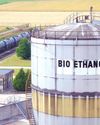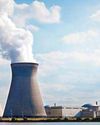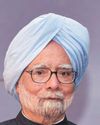
There were two outcomes at COP29 in Baku, Azerbaijan—in addition to a postponement—and both left a bitter taste for many.
The winners at the 29th annual edition of the United Nations Climate Summit were the United States, European Union, Canada, China, the Gulf countries, and the Azeris, who held the presidency of the summit this year.
The losers were emerging economies, least developed nations, island countries, and, of course, the global climate itself.
Unusually for a UN climate summit, COP29 was mainly about climate finance, and yet the finance mandarins were missing. Also missing were the heads of states of the EU, US, India, China, France, Germany, Brazil, and Russia, among many.
There were three key points of discussion. First, an agreement on a New Collective Quantified Goal on Climate Finance (NCQG), enabling countries to make new emission mitigation plans and set fresh goals by next February, dubbed Nationally Determined Contributions (NDCs). Second, adopting Article 6, an agreement among nations to set rules for a global carbon market. And third, a global stocktake to audit the emission plans of nations.
The first and second got through. The third got pushed to 2025.
Warming trajectory
The existing NDCs have failed to contain the warming of the planet beyond 1.5 degree centigrade from pre-industrial levels, the UN Environment Programme says in a report, with the planet set on a warming trajectory of 2.6 to 2.8 degrees.
But India, along with other emerging economies and poor nations, failed to persuade the Global North to open their wallets for a global climate finance deal.
Bu hikaye Business Standard dergisinin December 02, 2024 sayısından alınmıştır.
Start your 7-day Magzter GOLD free trial to access thousands of curated premium stories, and 9,000+ magazines and newspapers.
Already a subscriber ? Giriş Yap
Bu hikaye Business Standard dergisinin December 02, 2024 sayısından alınmıştır.
Start your 7-day Magzter GOLD free trial to access thousands of curated premium stories, and 9,000+ magazines and newspapers.
Already a subscriber? Giriş Yap

KEEPING UP WITH BRAZIL
If India wants to become a biofuel superpower like Brazil, it needs to get its ethanol 2.0 policies right
Indian cities reduce PM2.5 levels by 27% in 6 yrs: Report
Indian cities achieved an average 27 per cent reduction in PM2.5 pollution levels from 2019 to 2024, with those under NCAP alone recording a 24 per cent decline, a new report has found.

India adding N-power faster than global peers
India's nuclear power generation has grown twice as fast as the rest of the world in recent times.

Manmohan Singh was unfailingly measured, thoughtful and wise
It is both an honour and pleasure to have been invited to address this event in honour of Dr Manmohan Singh, the greatest man I have had the privilege of knowing.

Compare cited reasons with policy terms before challenging decision
Health and general insurers paid 82 per cent of claims by volume and 71.3 per cent by value (₹1.17 crore), according to the Insurance Regulatory and Development Authority of India's (Irdai's) annual report for 2023-24.

PVR Inox shares fade to black: Down 23%
Shares hit 44-month low as HMPV scare rattles market

Indo Farm shares up 27% on mkt debut
Shares of Indo Farm Equipment on Tuesday ended with a premium of over 27 per cent against the issue price of ₹215. The stock started the trade at ₹258.40, reflecting a premium of 20.18 per cent on the BSE. During the day, it jumped 33.44 per cent to ₹286.90. Shares of the firm ended at ₹272.70, up 26.83 per cent. At the NSE, it listed at ₹256, up 19 per cent. The stock ended at ₹273.69, a gain of 27.29 per cent. The company's market valuation stood at ₹1,310.37 crore.

Zomato shares fall 5% after Jefferies downgrade
Food aggregator Zomato's shares bled on Tuesday, as the stock plunged up to 5 per cent to hit an intraday low of ₹251.40 per share.

Q3 updates point to strong growth ahead for jewellery companies
Two leading listed jewellers, Titan and Kalyan, have just released their pre-quarterly updates for the third quarter of the current financial year (Q3FY25).

Equities may deliver 8-12% in 2025, says ABSL MF
In a year that is poised to be one of macroeconomic turbulence, with significant policy shifts and global trade uncertainties, investors should consider asset allocation strategies to capitalize on gains in all asset classes while reducing risks, Aditya Birla Sun Life Mutual Fund (ABSL MF) said in its outlook for 2025.